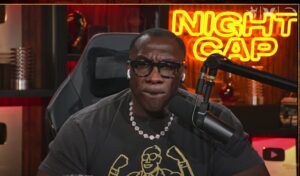
Rethinking interviews: A two-way street of evaluation
WHEN most people think about job interviews, the first thing that comes to mind is the polished, rehearsed sales pitch that you should deliver as a candidate. Job seekers meticulously prepare to present themselves as the perfect candidate: confident, competent, and completely committed. But what’s often overlooked in this ritual of professional courtship is the other side of the equation.
Yes, there is another side to the equation. Interviews are not just about you selling yourself but also about the organisation proving why they deserve your talent, energy, and expertise.
The truth is job interviews should be seen as a mutual evaluation process, a place where both parties come together to determine: Are we a good match? Just as candidates meticulously research the company, its culture, and its reputation, organisations should be prepared to demonstrate why they’re the kind of workplace that empowers and values their employees. Yet too often the scales are tipped, leaving candidates to scramble for approval while companies act as gatekeepers.
Think about it: Would you buy a house without inspecting the foundation? Would you marry someone you’ve only ever seen on paper? Of course not. Similarly, a job is more than a paycheque, yes, I said it. A job is more than a paycheque, it’s where you’ll spend a significant part of your life. So why settle for anything less than a clear understanding of the organisation you’re committing to?
The power dynamic in interviews needs to shift. Candidates should feel emboldened to evaluate their potential employers, not just to impress them.
Companies that recognise this dynamic set themselves apart. They actively invest in selling their vision, their culture, and their value proposition to candidates. They don’t just drill applicants with robotic questions like, “Tell us about yourself”, “Where do you see yourself in five years?” Instead, they open the floor for meaningful dialogue. They recognise that they’re not simply hiring a cog for their machine — they’re inviting a unique individual to join their story.
And if you’re a candidate? Consider yourself not just an interviewee but a detective. Ask those relevant questions that dig beneath the surface: What’s your company’s approach to work-life balance? How do you invest in employee growth? How does leadership handle conflict? What are the opportunities for growth? Does the company invest in its staff? Does the company believe in succession planning? An employer that hesitates or offers vague answers to such inquiries might just be waving a red flag.
In this era of work revolution, where hybrid models, mental health awareness, and employee empowerment are at the forefront, interviews need to reflect the evolving nature of employment relationships. Both parties hold value. Both hold power. Both deserve clarity. It’s not about who wins, it’s about building a partnership that fosters mutual success.
Here are some thoughtful and effective interview questions that candidates can ask to evaluate whether an organisation is a good fit for them:
Company culture & values
Can you describe the company’s culture and how it supports employee growth?
How does your organisation prioritise diversity, equity, and inclusion?
What are some traditions or events that reflect the company’s values?
Work-life balance
What does a typical workday look like for someone in this position?
How does the company support work-life balance for employees?
Are flexible working hours or remote options available?
Professional development
What opportunities are available for professional development or training?
How does the company help employees set and achieve career goals?
Are there mentorship programmes or paths for promotion?
Team dynamics & leadership
How would you describe the management style of the team leader or department head?
How are conflicts typically resolved within the team?
What are some qualities of successful employees in this department?
Performance metrics
How will my performance be evaluated, and what does success look like in this role?
Are there regular performance reviews or feedback sessions?
How does the company celebrate individual and team achievements?
Impact of the role
How does this role contribute to the company’s overall mission and goals?
Can you share an example of how someone in this position has made a measurable impact?
What are the short-term and long-term goals for this position?
Challenges & expectations
What challenges might someone in this role face, and how does the company support overcoming them?
Are there specific projects or initiatives I would be expected to contribute to immediately?
By asking these types of questions, candidates not only learn more about the company, but they also show genuine interest in understanding how the role and organisation align with their own values and career aspirations. These questions foster mutual respect and help turn the interview into a collaborative conversation rather than a one-sided interrogation.
So next time you walk into an interview, remember: You’re not just there to sell yourself. You’re there to evaluate, to question, and to ensure that the role aligns with your aspirations and principles. Interviews should no longer be a one-sided performance. Let’s make them the dynamic, reciprocal conversations they were always meant to be.
Because, in the end, it’s not just about getting the job. It’s about finding the right fit — for both of you.
Khalice Bradshaw-Davis is an industrial and organisational psychologist, career coach and counsellor. E-mail her at organisationalpsychologist@gmail.com.
























